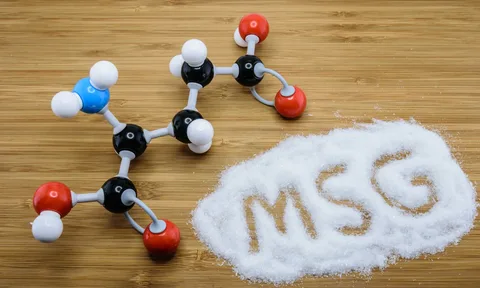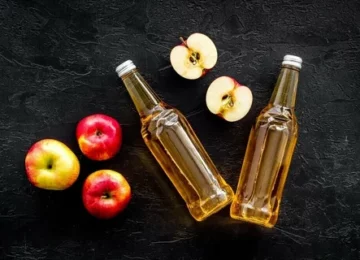Introduction
Monosodium Glutamate (MSG) is a flavor enhancer that has been used in cooking for decades to add savory umami taste to various dishes. Despite its widespread use, MSG has garnered controversy due to concerns about its potential health effects. In this comprehensive guide, we will explore what MSG is, common foods containing MSG, its safety, and answer frequently asked questions regarding its consumption.
Understanding MSG
MSG is the sodium salt of glutamic acid, an amino acid naturally found in many foods. It was first isolated in the early 20th century and has since been used as a flavor enhancer in cuisines worldwide. MSG is known for its ability to enhance the savory taste of foods, often referred to as umami, which is one of the five basic tastes along with sweet, sour, bitter, and salty.
Common Foods Containing MSG
While MSG is commonly associated with Asian cuisine, it can be found in various foods, including processed foods, snacks, and restaurant dishes. Here are eight foods that may contain MSG
Soups and Broths
Many canned soups, broths, and bouillons contain MSG to enhance flavor. This includes chicken, beef, vegetable, and mushroom soups.
Snack Foods
Certain snack foods such as chips, flavored crackers, and savory snacks may contain MSG to enhance their taste.
Processed Meats
Some processed meats like sausages, hot dogs, and deli meats may contain MSG as a flavor enhancer.
Canned and Packaged Foods
Packaged foods such as canned vegetables, pre-packaged meals, and instant noodles may contain MSG as a seasoning.
Sauces and Condiments
Condiments like soy sauce, teriyaki sauce, and certain salad dressings may contain MSG to enhance flavor.
Restaurant Foods
Many restaurants use MSG in their cooking to enhance the taste of dishes. This includes Chinese, Japanese, and other Asian cuisines, as well as some fast-food chains.
Frozen Meals
Frozen meals, including microwave dinners and frozen pizzas, may contain MSG as a flavor enhancer.
Seasoning Blends
Some seasoning blends, spice mixes, and flavored salts may contain MSG to enhance the taste of dishes.
Safety of MSG
Despite concerns about its safety, numerous scientific studies have found MSG to be safe for the majority of people when consumed in moderate amounts. The U.S. Food and Drug Administration (FDA) classifies MSG as Generally Recognized as Safe (GRAS) when used in accordance with good manufacturing practices.
MSG Sensitivity
While MSG is considered safe for most people, some individuals may experience adverse reactions after consuming foods containing MSG. This condition is commonly referred to as “MSG sensitivity” or “Chinese restaurant syndrome.” Symptoms may include headache, flushing, sweating, numbness or tingling, chest pain, and nausea. However, scientific evidence linking MSG to these symptoms is limited, and most people can consume MSG without experiencing any adverse effects.
Frequently Asked Questions (FAQs)
Is MSG the same as sodium?
No, MSG is not the same as sodium. MSG is a compound containing sodium, but it also contains glutamate, an amino acid responsible for its flavor-enhancing properties.
Is MSG only found in savory foods?
While MSG is commonly used in savory dishes to enhance their taste, it can also be found in some sweet foods, particularly those that contain processed or fermented ingredients.
Are there any health benefits to consuming MSG?
MSG enhances the flavor of foods, making them more palatable and enjoyable to eat. Some studies suggest that consuming MSG may help reduce the amount of sodium needed to flavor foods, which can be beneficial for individuals looking to reduce their sodium intake.
Can MSG cause long-term health problems?
There is no conclusive evidence to suggest that MSG causes long-term health problems when consumed in moderate amounts. However, some individuals may experience adverse reactions after consuming MSG-containing foods.
How can I avoid consuming MSG if I’m sensitive to it?
To avoid consuming MSG, read food labels carefully and look for ingredients such as monosodium glutamate, hydrolyzed vegetable protein, and autolyzed yeast extract, which may contain MSG. Additionally, choose fresh, whole foods and cook meals from scratch whenever possible.
Is MSG banned in any countries?
No, MSG is not banned in any country, although its use may be regulated in some places. It is widely used as a flavor enhancer in many cuisines around the world.
Conclusion
MSG is a flavor enhancer commonly used in a variety of foods to enhance their taste. While it is generally recognized as safe for most people, some individuals may experience adverse reactions after consuming foods containing MSG. By understanding where MSG may be found and being mindful of its presence in foods, individuals can make informed choices about their diet and consumption of MSG-containing products. If you have concerns about MSG sensitivity or its potential effects on your health, consult with a healthcare professional for personalized guidance.
- What Is Sapiosexuality And How It Shapes Attraction In The Digital Age? - June 1, 2025
- Profhilo Treatment Near Okewood, Surrey - May 31, 2025
- The Emotional Journey Of Being In A Pansexual Relationship - May 30, 2025



